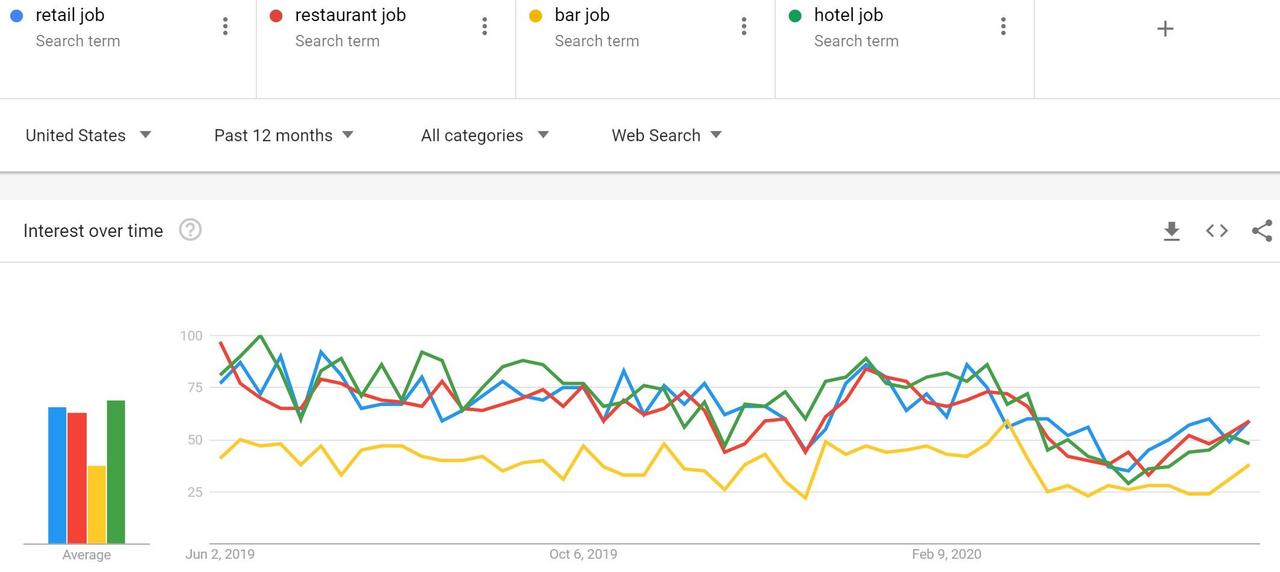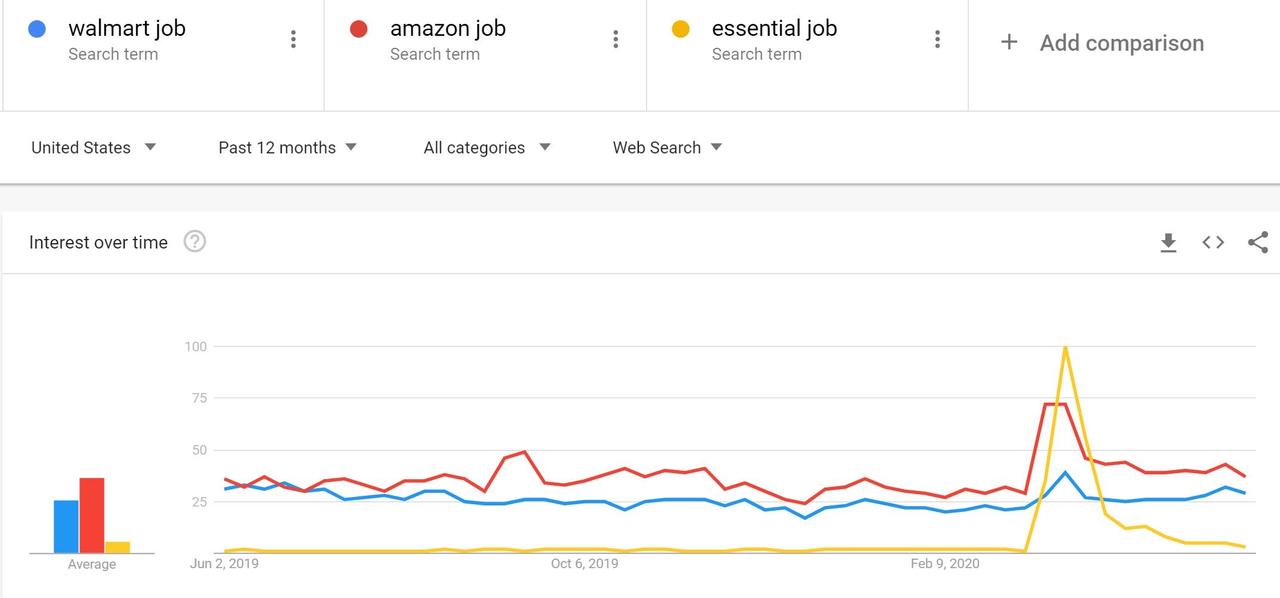Why The Assumption That High Unemployment Benefit Will Keep Workers From Returning To The Labor Market Is Deeply Flawed
Tyler Durden
Sat, 05/30/2020 – 17:30
Submitted by Jessica Rabe of DataTrek Research
“Contacts cited challenges in bringing employees back to work, including… generous unemployment insurance benefits.” That’s the topic getting the most attention from the Federal Reserve’s latest Beige Book out Wednesday. There’s more to the story, however:
-
As we noted yesterday in our review of the report, the extra $600/week unemployment insurance stimulus ends on July 31st, so that should help employers persuade workers to get back on payroll.
-
Business owners who received a PPP loan must eventually offer to rehire those they laid off. If a worker rejects the offer, the employer must often report the employee to the state unemployment office thus making the worker ineligible to keep receiving unemployment insurance benefits.
-
The PPP loan only covers up to eight weeks of wages, rent and other expenses. Given that business shutdowns started in mid-March, the window for many businesses to ask workers if they want their job back is narrowing.
In the end, however, the most important driver of whether furloughed workers quickly return to their jobs may come down to competition in the labor force. Let’s not forget that US unemployment is +/- 20% right now, and not everyone is collecting enhanced UI. Far from it, in fact. Employers can reasonably expect to have many job applicants in the coming months.
That leverage only works if there are people searching for work right now, so we looked at Google search volumes for a variety of COVID Crisis-affected service sector jobs to see if that was the case:
#1: A comparison of Google searches for “retail job”, “restaurant job”, “hotel job” and “bar job” over the last year.
Our take:
-
Searches collapsed in mid-March as businesses in the retail and leisure and hospitality sectors closed. Interest has picked up to about half of normal levels over the last month as more US states reopen their economies.
-
The top three states searching for each query: “retail job”: Mississippi, Arkansas, Kansas. “Restaurant job”: New Hampshire, Utah, Rhode Island. “Bar job”: Wisconsin, Missouri, Pennsylvania. “Hotel job”: Hawaii, Iowa, Oklahoma.
-
Most of those states have started reopening their economies, some even already allowing dine-in or outdoor dining at restaurants over the course of May. The two exceptions: Pennsylvania will allow outdoor dining statewide soon on June 5th, while restaurants in Hawaii can reopen on June 1st.
Bottom line: demand for service sector jobs is increasing right now, so currently furloughed/laid off workers face potential competition from others who would take a job today. If called to return to work, they will have to consider the very real possibility that if they decline or try to defer their job will not be there later. Also consider that tens of thousands of retail/leisure/hospitality workers are unemployed and may not have unemployment insurance; this will only increase demand for service sector jobs in the months to come.
#2: A comparison of Google searches for “Walmart job”, “Amazon job” and “Essential job” over the last year.
Our take:
- Searches for “Walmart/Amazon/essential job” all spiked in mid-March when businesses closed, highlighting the brief period in which those were the only kinds of jobs available to apply for.
- Interest has since dissipated as states allow establishments to reopen and the labor market resets to greater normalcy.
Bottom line: Amazon and Walmart could see more interest again as the extra unemployment insurance money gets phased out next month since many of those positions are full time and offer benefits. Many small businesses will likely cut people’s hours to part-time as already shown in the latest Beige Book: “some employers noted that while they didn’t lay off staff, they did reduce the number of hours they worked.”
By contrast, Amazon just announced that the company plans to offer permanent jobs to as many as 70% of those it hired temporarily to meet demand during the COVID-19 Crisis. This full-time work includes health insurance and retirement plans.
In sum, the assumption that high unemployment payments will keep workers from returning to the labor market is deeply flawed; there is and will be too much competition for jobs to make this a lasting issue. The Beige Book shows it is happening to some degree, but employers – especially those who took federal assistance – can only hold off on offering people their jobs back for so long. Even though some workers may refuse employment, there are clearly many Americans actively seeking jobs in retail and leisure and hospitality again as they become available in reopened states.
Sources:
Fed Beige Book: https://www.federalreserve.gov/monetarypolicy/files/BeigeBook_20200527.pdf
Amazon announcement: https://www.reuters.com/article/us-health-coronavirus-amazon-com-workers-idUSKBN2341FD
via ZeroHedge News https://ift.tt/2MdfKOT Tyler Durden

